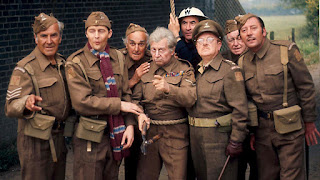Eighty years ago, a desperate situation calls for great situation comedy
The Franco-British strategy to counter a German land attack crumbled at its first contact with reality. Its key element was its fatal flaw. It had long been planned to push the British army into Belgium but this was a strategy of default. The allies had never truly addressed the implications of having an unfortified frontier with Belgium in contrast to the defences of the Maginot Line. It was little better than pious hope that a worthwhile line of defence could be established along the Dyle. Occupying Belgium was also supposed to deprive the Luftwaffe of bases from which to attack Britain.
The move into Belgium played perfectly into German hands, leaving the allied armies split as the Wehrmacht broke through the supposedly difficult terrain of the Ardennes. After only ten days the Germans reached the sea near Abbeville, cutting off the British army and large French forces in a pocket on the north coast of France. The German advance was temporarily held back by a large British counter-attack at Arras but it was impossible to disguise the scale of the defeat.
The French political response appeared at first glance to promise a stiffening of resolve. Georges Mandel, the mostly firmly anti-appeasement minister, was promoted and a distinguished former soldier was brought into the cabinet. But that soldier was Marshal Petain, who was reluctant to lose the lives of French soldiers as well as holding deeply conservative views of society.
The British finally authorised the RAF to begin bombing "strategic" targets in Germany as opposed to merely dropping propaganda leaflets, which had been its chief occupation during the phony war. This was the task that the RAF had long seen as its war-winning mission. The air raids inflicted minimal damage and did nothing to halt the German land campaign.
The scale of the threat to Britain was so great that a military organisation was created to counter an invasion. Men outside the call-up age of 18 to 41 were asked to join the Local Defence Volunteers, but this leaden and bureaucratic title was speedily changed to the more stirring "Home Guard." Mercifully for its members, the Home Guard never saw action but it was immortalized as "Dad's Army."
The French political response appeared at first glance to promise a stiffening of resolve. Georges Mandel, the mostly firmly anti-appeasement minister, was promoted and a distinguished former soldier was brought into the cabinet. But that soldier was Marshal Petain, who was reluctant to lose the lives of French soldiers as well as holding deeply conservative views of society.
The British finally authorised the RAF to begin bombing "strategic" targets in Germany as opposed to merely dropping propaganda leaflets, which had been its chief occupation during the phony war. This was the task that the RAF had long seen as its war-winning mission. The air raids inflicted minimal damage and did nothing to halt the German land campaign.
The scale of the threat to Britain was so great that a military organisation was created to counter an invasion. Men outside the call-up age of 18 to 41 were asked to join the Local Defence Volunteers, but this leaden and bureaucratic title was speedily changed to the more stirring "Home Guard." Mercifully for its members, the Home Guard never saw action but it was immortalized as "Dad's Army."



Comments
Post a Comment